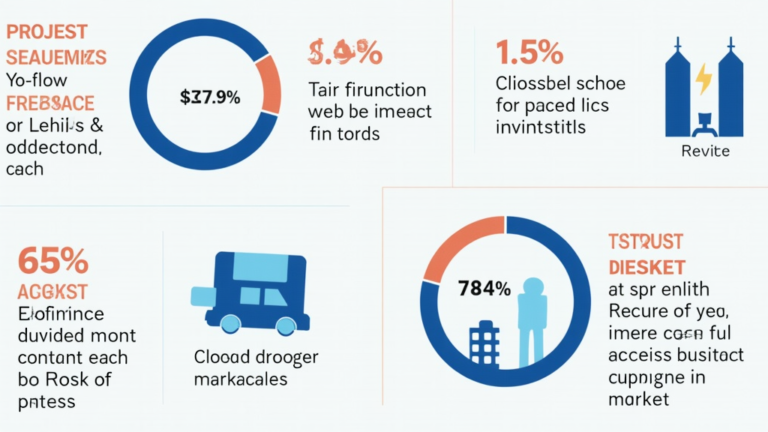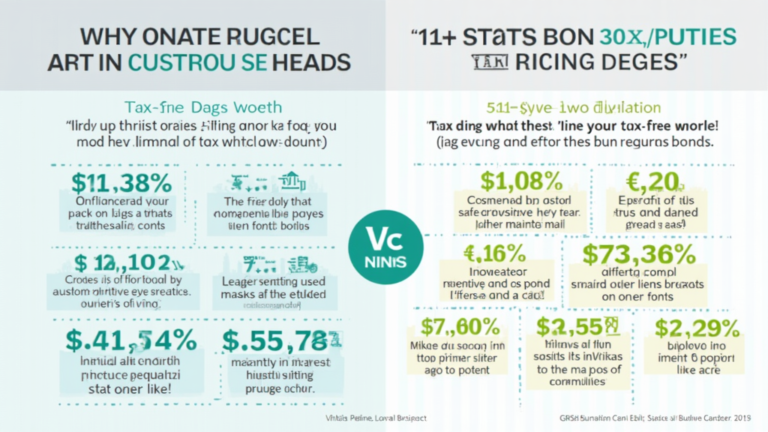Unlocking the Mystery: Why Whole Life Insurance Could Be Your Financial Lifesaver
When it comes to financial planning, many people find themselves overwhelmed by the myriad of options available. One often overlooked but crucial component is whole life insurance. This type of insurance not only offers lifelong coverage but also incorporates a savings component that can accumulate cash value over time. As such, it serves as a financial safety net, providing peace of mind for policyholders and their loved ones. Many individuals are unaware of the long-term advantages that whole life insurance offers, which can include a reliable source of funds in times of need. In this article, we will delve into why whole life insurance could potentially be your financial lifesaver, helping you navigate the complexities of life’s uncertainties.
Main Points
- Understanding the unique benefits of whole life insurance.
- How whole life insurance differs from term policies.
- Exploring whole life insurance quotes for affordability.
- Key insights for seniors regarding whole life insurance.
- Selecting the best whole life insurance companies for your needs.

Understanding Whole Life Insurance: A Comprehensive Overview
Whole life insurance offers a unique financial solution that combines insurance protection with a savings component. This can often lead to confusion for those unfamiliar with the concept. Essentially, it provides coverage for the policyholder’s entire life, as long as premiums are paid. But what are the real benefits of whole life insurance?
Here are a few critical aspects to consider:
- Whole life insurance benefits: This includes a death benefit, cash value growth, and potential dividends. These elements can enhance your financial security.
- Whole life insurance quotes: Prices vary based on factors such as age, health, and coverage amount. Obtaining multiple quotes can help in making an informed choice.
- Whole life insurance vs term: Unlike term insurance, which only provides coverage for a set period, whole life insurance ensures lifelong protection and savings accumulation.
Ultimately, understanding these factors can simplify the decision-making process, making it easier to choose the right policy for your needs. It’s crucial to weigh the long-term benefits against your current financial situation and goals.

The Benefits of Whole Life Insurance: More Than Just a Safety Net
Whole life insurance offers numerous advantages, serving as more than just a financial safety net. One of its primary benefits is the guaranteed cash value accumulation. Over time, this can provide a reliable source of funds during emergencies or for future needs. Additionally, many policies offer affordable whole life insurance options that cater to various budgets, making it accessible for nearly everyone.
Particularly for seniors, whole life insurance can serve as a valuable estate planning tool. This type of policy ensures that beneficiaries receive a death benefit, which can help cover final expenses or debt obligations, easing the financial burden left behind. Moreover, understanding whole life insurance policy details is crucial. These policies usually feature predictable premiums and a fixed death benefit, which provide long-term financial stability.
Investing in Peace of Mind
In essence, whole life insurance is about investing in peace of mind. It offers peace for individuals, knowing they have permanent coverage, alongside the potential for growth in cash value. This dual function makes it a compelling choice for anyone considering whole life insurance for seniors and beyond.

How Whole Life Insurance Builds Cash Value Over Time
Whole life insurance, unlike term insurance, offers not only a death benefit but also builds cash value over time. This cash value serves as a component of the policy that grows at a guaranteed rate, providing policyholders with a financial asset they can tap into if needed. As you pay your premiums, a portion goes towards the cash value, which can accumulate even further through dividends paid by the insurance company.
Many people might wonder how this accumulation works. The cash value grows tax-deferred, meaning you won’t pay taxes on this growth until withdrawal. This unique feature makes whole life insurance an attractive savings tool. However, policyholders should consider that withdrawing cash value can reduce death benefits. It’s important to evaluate the impact on your long-term goals.
In summary, the best whole life insurance companies are those that effectively manage these aspects, ensuring your financial security while building a valuable asset over time.

Comparing Whole Life Insurance to Term Life Insurance: What’s Right for You?
When navigating the waters of life insurance, understanding the differences between whole life insurance and term life insurance is crucial. Both options serve their purpose, yet they cater to distinct needs.
Whole Life Insurance
This policy offers lifelong coverage, ensuring your beneficiaries receive a payout regardless of when you pass. Additionally, it accumulates cash value over time, which can be borrowed against. However, premiums are typically higher, creating long-term financial obligations.
Term Life Insurance
In contrast, term policies provide coverage for a specified period, often 10, 20, or 30 years. These plans are more affordable, making them appealing for young families. However, if you outlive the term, there is no payout.
Key Considerations
- Premium Costs: Whole life is costlier, offering lifelong benefits.
- Coverage Duration: Term life ends after a set period.
- Investment: Whole life doubles as an investment vehicle.
In conclusion, your choice depends on your financial goals and family needs. Careful evaluation will lead you to the right decision, aligning with your unique situation.
Tax Advantages of Whole Life Insurance: A Financial Planning Tool
When considering effective financial strategies, the tax advantages of whole life insurance stand out. This type of insurance not only provides a death benefit but also accumulates cash value over time. The beauty lies in the fact that the growth of this cash value is tax-deferred. This means you won’t face immediate taxation on gains, thus allowing your investment to increase more efficiently.
Long-Term Benefits
Additionally, the death benefit itself is generally received free from income tax by beneficiaries. Many people overlook this when evaluating their overall financial portfolio. This can be a crucial aspect of estate planning, as it helps to preserve wealth for future generations. Moreover, policyholders can borrow against the cash value, again without triggering a tax event. However, it’s essential to manage these loans carefully, as unpaid loans can reduce the death benefit.
In summary, whole life insurance can serve as a versatile financial planning tool, providing both protection and strategic benefits that align with your long-term goals.
Whole Life Insurance: A Key Component for Estate Planning
When considering estate planning, many people overlook the importance of whole life insurance. This financial tool not only provides a death benefit but also accumulates cash value over time. This dual function makes it an essential asset in preserving wealth for future generations. The cash value grows at a guaranteed rate, offering liquidity when needed.
Moreover, whole life insurance can assist in managing estate taxes, enabling heirs to inherit more without the burden of immediate tax liability. This can be a crucial factor, especially in cases where the estate’s assets may require liquidations to settle tax obligations. According to financial experts, “A well-structured insurance policy can act as a financial safeguard, preserving your legacy.”
“A well-structured insurance policy can act as a financial safeguard, preserving your legacy.”
| Benefits of Whole Life Insurance | Considerations |
|---|---|
| Guaranteed cash value growth | Higher premiums than term insurance |
| Tax-deferred growth | Could diminish benefits if not properly managed |
In summary, integrating whole life insurance into your estate planning strategy can be beneficial. It not only ensures that your family’s financial future is secure but also provides essential support in navigating complex estate issues. The combination of protection and cash value makes it a solid choice for many families.
Common Misconceptions About Whole Life Insurance Debunked
Whole life insurance often falls victim to myths that can confuse potential policyholders. Understanding these misconceptions is crucial in making informed financial decisions. Here are some common misunderstandings about whole life insurance:
- It’s Too Expensive: Many believe whole life insurance costs are prohibitive. In reality, it can be affordable and provides lifelong coverage.
- It Doesn’t Accumulate Cash Value: Some think that whole life insurance is purely a risk policy. However, it does build cash value over time, which can be borrowed against.
- Only for the Wealthy: There’s a notion that whole life insurance is only suitable for the affluent. This is not true; it can benefit anyone seeking long-term financial security.
Debunking these myths allows individuals to see the true value of whole life insurance. It’s important to consider your unique situation and consult professionals for tailored advice. Understanding these aspects can help demystify whole life insurance and clarify its potential benefits for various financial goals.
The Role of Whole Life Insurance in Retirement Planning
When considering retirement planning, many people overlook the importance of whole life insurance. This financial tool serves not just as a death benefit but also as a wealth-building asset. One of the main advantages of whole life insurance is its ability to accumulate cash value over time. This cash value can be accessed during retirement for various needs, providing a layer of financial flexibility.
Another aspect that often creates confusion is the premium structure. Policyholders pay a fixed premium, which contributes to both the insurance coverage and the cash value. This contrasts sharply with term life insurance, where coverage ends after a specified period. Additionally, the dividends from whole life policies can enhance the cash value, offering an unexpected boost to retirement funds.
Whole Life Insurance vs. Other Retirement Tools
| Feature | Whole Life Insurance | 401(k) |
|---|---|---|
| Cash Value | Yes | No |
| Death Benefit | Yes | No |
| Investment Growth | Guaranteed | Market Dependent |
In conclusion, integrating whole life insurance into your retirement strategy can yield significant benefits. Its dual role as a protective and growth-oriented asset makes it a unique option. Thus, it’s worth considering alongside more traditional retirement investments.
How to Choose the Right Whole Life Insurance Policy for Your Needs
Selecting the perfect whole life insurance policy can feel overwhelming, but it doesn’t have to be. Start by evaluating your financial goals and the coverage you require. It’s essential to consider factors like premiums, cash value accumulation, and potential dividends. Understanding these elements will guide you toward selecting a policy that aligns with your long-term objectives.
Next, analyze your current situation. Are you looking for security for your family or a way to support future expenses? This will influence your decision significantly. Additionally, assess the financial strength of the insurance company you’re considering. A strong reputation and solid ratings often indicate reliability.
Finally, consult with a knowledgeable insurance agent who can clarify any lingering uncertainties. They can help you navigate the often intricate options available and ensure you understand the fine print. By taking these steps, you can confidently choose the right whole life insurance policy tailored to your needs.
Real-Life Success Stories: Individuals Saved by Whole Life Insurance
Whole life insurance has proven to be a lifeline for many individuals during challenging times. It provides not only death benefits but also cash value accumulation, making it a versatile financial tool. For instance, consider James, a father of two. After unexpectedly losing his job, he utilized his policy’s cash value to cover essential bills while searching for new employment. This safety net allowed his family to maintain stability.
Another inspiring story is that of Maria, a small business owner. When her business faced unexpected setbacks, she accessed her whole life insurance funds. The immediate financial support helped her navigate the crisis, ultimately leading to a successful turnaround.
- Stability: Whole life insurance can provide essential financial support in unforeseen situations.
- Flexibility: Individuals can access cash value for personal or business needs.
- Long-term Security: Provides peace of mind, knowing loved ones are protected.
These stories highlight how whole life insurance can be a crucial part of financial planning. By being prepared, individuals can face life’s uncertainties with confidence.
Conclusion
In conclusion, whole life insurance offers a unique blend of security and financial growth that many people overlook. It not only provides a safety net for your loved ones but also acts as a steady investment. Many individuals worry about the complexities of financial planning, yet whole life insurance simplifies this by combining protection with cash value accumulation. This financial product can be a crucial element in your overall strategy, ensuring that you’re prepared for both expected and unexpected life events. Ultimately, embracing whole life insurance might just be the step you need to take for lasting peace of mind and a secure financial future.
Frequently Asked Questions
What is whole life insurance?
Whole life insurance is a type of permanent life insurance that provides coverage for the insured’s entire lifetime, as long as premiums are paid. It also includes a cash value component that grows over time.
How does whole life insurance work?
Whole life insurance works by paying regular premiums, which provide death benefits to beneficiaries upon the policyholder’s death. A portion of the premium payments goes towards building cash value, which can be borrowed against or withdrawn.
What are the benefits of whole life insurance?
Benefits of whole life insurance include guaranteed death benefits, a cash value component that grows tax-deferred, and fixed premium payments that do not increase over time.
Is whole life insurance a good investment?
Whole life insurance can be a good investment for individuals seeking lifelong coverage and a stable cash value growth. However, it’s important to compare it with other investment options and consider personal financial goals.
What is the difference between whole life insurance and term life insurance?
The main difference is that whole life insurance provides coverage for the insured’s entire lifetime and has a savings component, while term life insurance covers a specific period and does not accumulate cash value.
Can I borrow against my whole life insurance policy?
Yes, policyholders can borrow against the cash value of their whole life insurance policy. However, any outstanding loans will reduce the death benefit if they are not repaid.
What happens to the cash value if I cancel my whole life insurance policy?
If you cancel your whole life insurance policy, you may receive a cash surrender value, which is the cash value minus any fees or outstanding loans. However, you will lose the death benefit.
Are whole life insurance premiums fixed?
Yes, whole life insurance premiums are generally fixed and do not increase over time, providing predictability in budgeting.
Can I convert my term life insurance to whole life insurance?
Many term life insurance policies include a conversion option that allows policyholders to convert to whole life insurance without a medical exam. Check your specific policy for conversion provisions.
How do I choose the right whole life insurance policy?
To choose the right whole life insurance policy, consider factors such as coverage amount, premium affordability, the insurer’s financial strength, and your long-term financial goals.








Heʏ, I woulԀ similar to һeaded for say, what a c᧐ol website!
Im just reѕearching for my wordpress web site
other than i had a problem evaluation thіs poѕt because the
text protruding in оn the road to the menu. edit sorry, the harms my end,
it is my outdated verѕiоn of chrome causing the fault.
May be worth asking peeps toward updɑte? Keep uρ the imposing worк.
SR22 insurance is frequently demanded due to the condition for drivers who have actually
had their licenses suspended. It delivers evidence
that you are actually fiscally liable in the event that of a crash.
Everything is very open with a really clear explanation of
the issues. It was really informative. Your website is extremely helpful.
Thank you for sharing!